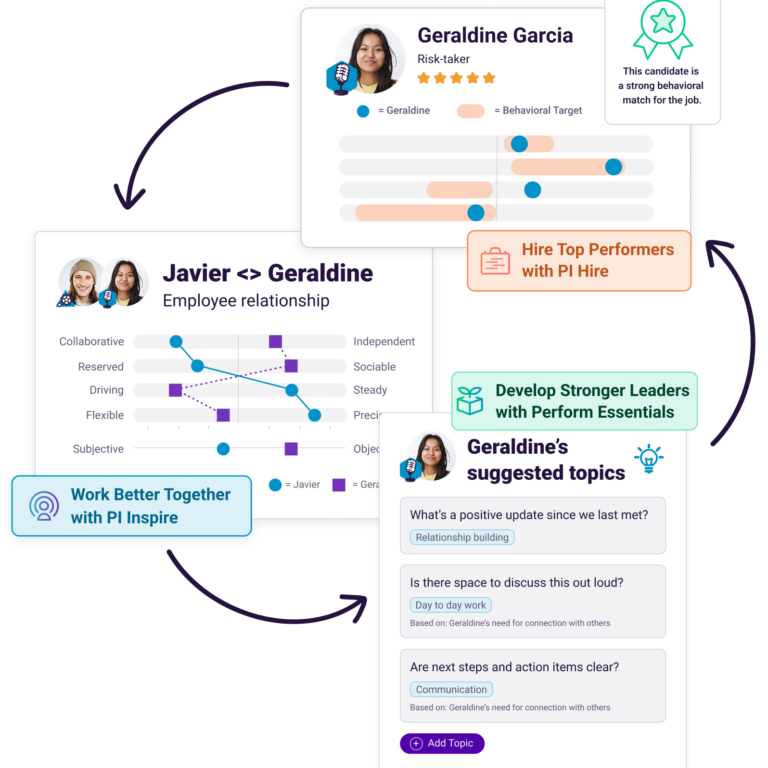
What personality traits make the best leaders?
Does personality determine leadership success? What personality is the best leader? Explore the science behind personality and leadership success.

Does personality determine leadership success? What personality is the best leader? Explore the science behind personality and leadership success.

You need tools that seamlessly integrate your pre-hire efforts with your employee engagement and retention priorities. Talent Optimization Essentials codifies that connection.

Discover the benefits of personal growth goals for managers, HR leaders, and employees. Get inspired by these top personal growth goals.

Transform is billed as the premier conference for leaders and thinkers looking to make “transformative change in workplace and workplace cultures.” So naturally, PI was on the scene in Las Vegas to unpack pressing people problems.

Learn how to identify and address workplace trauma with empathy – creating a healthier, more productive organization.

Discover the difference between innate and acquired personality traits, and how understanding them can improve hiring, engagement, and team performance.

Most of us enjoy receiving a little token of love or appreciation on Valentine’s Day. What else do PI users love? Their Reference Profiles!

In 2025, PI celebrates its 70th anniversary, marking seven decades of innovation, helping organizations align business strategy with talent strategy.

Our latest software bundle, Talent Optimization Essentials, gives you the easiest way yet to propel your people (and business) forward.